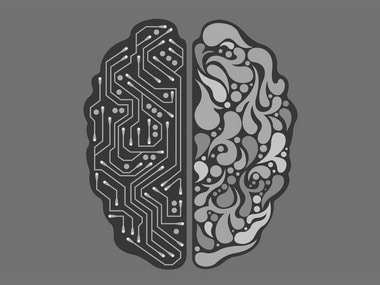A few years ago, we had to rush home to get to our television sets to catch our favourite shows but today, the way we spend our leisure time has changed dramatically. The introduction of streaming over a decade ago enabled viewers to watch what they want, when they want it. In addition, the advent of mobile devices means that consumers can literally take the content with them wherever they go. In Asia Pacific, the time spent streaming video on mobile devices grew by more than 300 percent between 2015 to 2017. [caption id=“attachment_4251173” align=“alignleft” width=“380”]  Artificial Intelligence[/caption] With accessibility to content enhanced so dramatically, today’s viewers are now faced with a new conundrum—hundreds and thousands of content choices. As a result, people are spending more time searching for content they want to watch. According to research, millennials spend 32 minutes per day searching for content, a number boosted by the number of services and devices they have in the home. In addition, 46 percent of millennials and 20 percent of baby boomers feel extremely frustrated when they cannot easily find and access the programs they want to watch. This, in turn, leads to show-dumping which means that content producers and providers are losing valuable viewership numbers, not because of bad quality content but because audiences simply cannot find and access the content they want easily. These findings illuminate an existing gap between viewer expectation and the current limitations of the discovery experience available to the average consumer. Fortunately, the advancement of technology, such as artificial intelligence, has enabled new and efficient ways for us to address this problem, which in turn has changed the way that we consume entertainment. Predicting real behaviour with artificial intelligence Artificial intelligence is being adopted increasingly across industries to improve customer experience and many are already familiar with concepts like chatbots, real-time product recommendations and smart homes. In the entertainment industry, we can harness AI’s ability to study and derive patterns from human content consumption and viewing patterns to drive automated decisions that can be highly customised for the individual. This approach, also known as deep learning, has long been adopted by Google to enhance the outcome of their search queries. Today, nearly all tech giants are investing heavily in AI. Broadcasters and content providers can follow suit by aggregating data and analysing key behavioural patterns that can be used to predict consumer behaviour such as what different viewers want to watch at different times of the day. For example, a white-collar professional may be more inclined to watch a news program in the morning while preferring to watch TV dramas or movies in the evening. A study by Google on YouTube viewing habits found that people tend to watch beauty, fashion and pop culture videos on their mobile phones, travel and food videos on their desktops while news, sports and comedy were the most popular categories to watch on TV. This research shows that mobile devices have brought about more varied viewing habits and these insights can help broadcasters and content producers to recommend the most relevant content on the right platforms. Language, culture, and other social factors also play a role in determining the kind of content that would be well-received by a certain market. For example, viewers in Southeast Asia enjoy Korean drama shows while Australians prefer European dramas and sports. By considering all these behavioural data, AI can perform predictive content discovery and provide highly customised recommendations for every viewer based on their lifestyle and preferences. Charting the course for entertainment with AI AI is no doubt actively shaping the way that we consume entertainment. At the same time, studios, broadcasters and networks will be able to reach their target audience at the right time, place and device, thus minimising show dumping and maximising viewership. The next step for both content providers and consumers to consider is how AI is elevating **voice search capabilities** like those being used in Apple’s Siri, Amazon’s Alexa and Microsoft’s Cortana. This apparent demand is setting the stage for yet another new era of entertainment discovery that will have a profound impact on both consumers and content providers. The author is vice president sales, APAC, TiVo
Both content providers and consumers to consider is how AI is elevating voice search capabilities like those being used in Apple’s Siri, or Amazon’s Alexa.
Advertisement
End of Article


)
)
)
)
)
)
)
)
)



